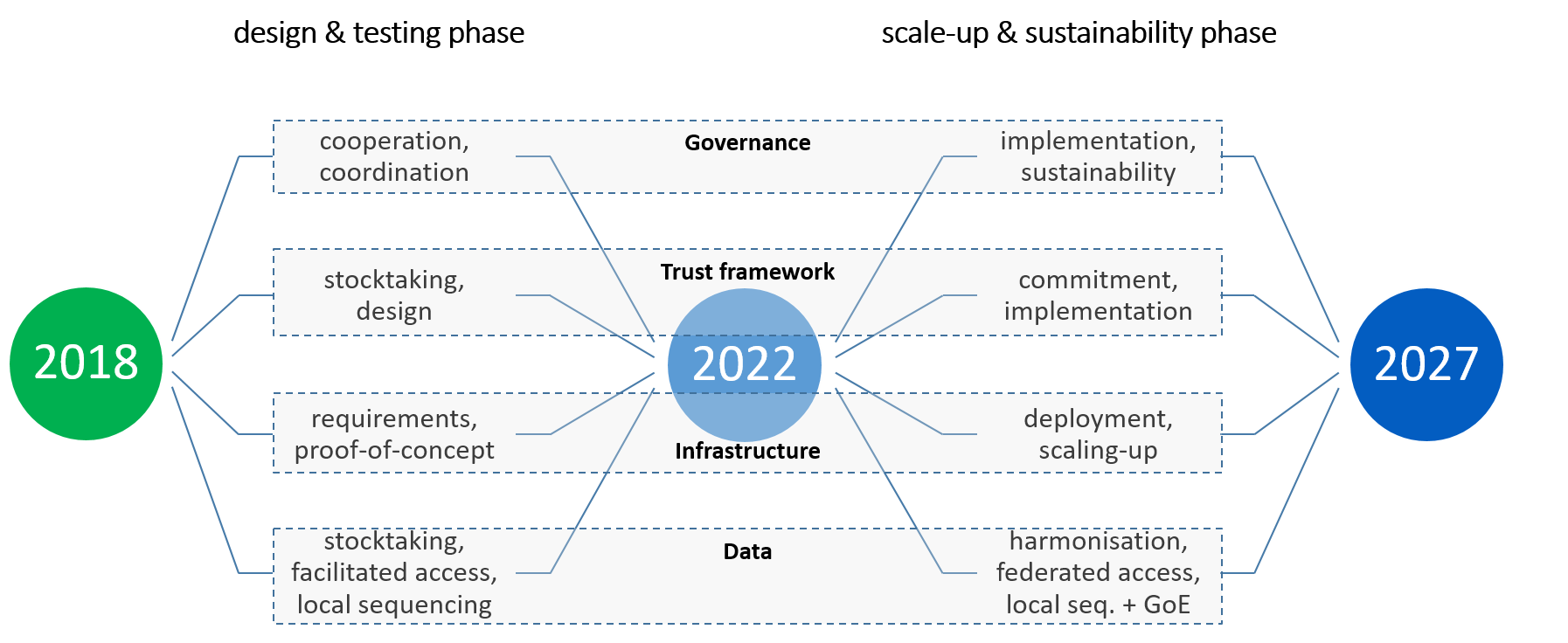Traffic congestion is one of the UK's most important challenges. Especially in densely populated cities. In order to overcome these challenges, the West Midlands government, in collaboration with private information and communications companies, has developed an innovative solution based on 5G technologies to monitor road traffic. Obtaining real-time information that helps to better guide traffic to avoid traffic jams before they occur, The solution also enables the authorities to effectively plan future infrastructure and road construction projects.
The UK is moving towards a new methodology based on fifth-generation communications network technologies to address the challenges caused by traffic congestion. It provided an opportunity for the concerned authorities to adopt technological innovations and solutions concerned with regulating road traffic and reducing the impact of daily traffic congestion. To achieve this vision, the West Midlands Transport Corporation (TfWM), part of the West Midlands Unified Authority, is currently overseeing the project, which it is implementing in collaboration with several strategic private sector partners such as WSP Consulting. Siemens Technology, and Vodafone Communications.
As a first step, a number of main roads have been selected, which are the busiest, In addition to its branch streets in the West Midlands in England, It is the first region in the UK to implement such a project that adopts digital technologies based on data collected via a network of sensors distributed on the roads. Although these roads constitute no more than 7% of the total road network, However, it transports more than half of the region's traffic. This is what made it vulnerable to traffic jams and traffic jams.
During the first phase of the project, a network of sensors, radars and cameras connected to a fifth-generation communications network will be installed at designated points on the roads. These devices collect detailed real-time traffic flow information and send it to the West Midlands Traffic Control Center. Which in turn takes measures to maintain smooth traffic and reduce traffic jams. In this way, the traffic monitoring team will be able to alert the places where vehicles start to slow down at any point of the road and manage traffic to avoid traffic congestion. Thus, the project will provide control center officials with several options related to traffic management, Includes diversion of public buses from congestion points, or send patrols to temporarily divert traffic to other routes, Or send warning messages advising drivers to avoid using congested roads.
On the other hand, The project will enable traffic departments to apply digital twinning techniques through which various data and variables on the roads are collected and analyzed. To build computer models that can be tested on the ground, To validate them before adopting them in traffic optimization. These models will also help provide a more accurate understanding of changes in driver behavior. Especially at a time when movement restrictions taken due to the COVID-19 pandemic are being lifted.
In addition to these advantages, The new £5.8m (approximately US$8m) project, It will enhance the capabilities of traffic departments to predict and prepare for any traffic congestion that may result from accidents or difficult weather conditions. It is also expected that the new system will eliminate or limit the use of some of the methods currently used in traffic management. Such as the road compressed air duct system used to measure traffic, Or the use of CCTV cameras on the streets, or Automatic Plate Number Recognition (ANPR). These traditional methods require maintenance and high costs compared to the techniques of the new project.
It is worth noting that the new system is capable of collecting detailed data that cannot be obtained through traditional means. such as data on pedestrian and bicycle traffic, As well as its role in supporting future initiatives to improve traffic services and regulate the use of environmentally friendly means, Such as bicycles or "e-scooters". The system will also be harnessed to benefit from it in many other aspects, Such as supporting it with special sensors to measure noise levels, or the proportion of particles or particles polluting the environment, Or measure carbon dioxide emissions.
By the end of the second and final phase of the new project, an additional 280 sensors will be installed in all seven administrative divisions of the West Midland Unified Authority. In March 2022. Officials hope that the expected success of this trial will lead to the adoption of similar models in other parts of the UK to reduce traffic congestion and ensure effective traffic management through the adoption of fifth-generation communications network technologies.
References:






